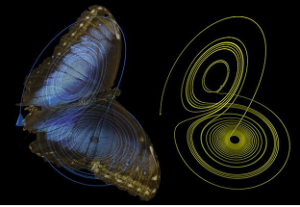
What does it mean to see
We explore blindness a lot in our posts: philosophical (in Plato’s Republic, the myth of the cave), logical (Parmenides, Russell, Hilbert, etc.), religious (Feuerbach, Hegel, etc.) and literary (Saramago’s blindness essay and the Plague of Camus), just to name a few, besides them we navigated about the language in Heidegger, Hans-Georg Gadamer, Levinas, Ricoeur and others.
the myth of the cave), logical (Parmenides, Russell, Hilbert, etc.), religious (Feuerbach, Hegel, etc.) and literary (Saramago’s blindness essay and the Plague of Camus), just to name a few, besides them we navigated about the language in Heidegger, Hans-Georg Gadamer, Levinas, Ricoeur and others.
Now we want to navigate through the world of vision, said Bachelard: “all beings are pure because they are beautiful”, while the poet Alberto Caeiro “the world was not made for us to think about it, but for us to look and agree, also the Russian philosopher and mystic Nicolas Berdjaev (there are many Russian mystics) used to say that in Paradise there is no ethics and there is only aesthetics, all this to say that seeing is having eyes for beauty, which is why many things today that are ugly are self-proclaimed beautiful, so the inversion is not just ethical .
The ugly was for Plato, from the ontological point of view, the almost-nothing, the sensible world being what is apparently real, being mere shadows of ideas (the myth of the cave) and the ideal (eidos) the truly real, thus the ugly it is formless and has no real existence and is not a universal model.
It is not unnatural that in a fragmented world, on the brink of its polycrisis, beauty almost disappears, and so man does not see it, what he sees are shadows, drafts of diffuse and confused ideas, the universal model disappears and discourse is merely discourse. of the conflict.
We like the point, straight and flat, but this is Euclid’s Geometry, the world is not straight and flat.
The beautiful emerges in harmony, suggests fusion where there is division, confuses the chaotic by giving it form and even the world of pure form is no longer geometric it is fractal, not fractional, but a natural fraction belonging to the whole of the less significant part of the whole body (in the photo the Lorentz fractal and the butterfly effect).
From the logical point of view it is the approximation of chaos theory (there is chaotic logic), from the philosophical point of view it is the view of complexity (the simple is almost always simplistic), from the religious point of view one can say: “God created everything and saw that it was good” (and beautiful), from a literary point of view I think the best expression was Friedrich Schiller (1756-1805): “How are we going to rebuild the unity of human nature, which seems completely suppressed by this original opposition and radical?”(page 71), wrote in his work “Educação Estética do Homem”, about the division inside man between the formal impulse that drags him in the dimension of his time.
Seen as a poet it is a wonderful work, as a philosophy it is subject to criticism due to the historical distance of its time and the walls of the German ideology of its time.
SCHILLER, F. (1989) “Educação Estética do Homem numa série de cartas”, trad. Roberto Schwartz e Márcio Suzuki, Brazil, São Paulo: Editora Iluminuras.









